I S S U E 6
Eve Grubin
Keep Not Knowing
Through the curtain’s gauzy white: rectangles of light.
I am tired of avoiding. Tired of being tired.
Rabbi Tarfon said, ‘Jonah entered the fish’s mouth
as if he were entering a synagogue’.
Yesterdays ago I worked hard. Wrote a book.
A pearl suspended inside the fish provided noon sun,
allowing Jonah to see through the fish’s eyes into the ocean.
*
The baby’s cry pierces the wall.
I sink up out of the blue dream
as you stagger across the Earth’s surface, your tall
shadow, your confident stumbling
along the equator from east to west,
the length of several degrees of longitude
in your pajamas. I sink up to the treetops,
dreamless.
Yesterday, we talked about the shade
of a certain blue mentioned in the Torah.
Was it the blue of our son’s lips after a bath?
Or the blue of redemption?
Or the dark blue of the sky
the night we walked across the sands, the seas all around us.
*
After Rabbi Akiva died wisdom no longer existed.
When our baby arrived,
night deepened, opening
into the blacker night living inside the night.
After Rabbi Eliezer died the Torah hid itself.
Little ears and shoulders brought shudders of awe, vibrations
of not-knowing.
After Rabbi Yosi Katanta died there were no saintly people left.
The baby’s rhythms of goodness beating like distant drum patterns.
After Ben Azai died there was no one living who learned unceasingly.
Learning sprouted into head-fuzz, into the translucent
hardness of fingernails.
After Rebbi died humility ceased.
Rabbi Yosef said, ‘Don’t teach that humility ceased. I’m here!
They said to him: ‘But if you claim that, then you are not humble!’
Rabbi Yosef replied: ‘I must tell the truth—this is the Mishnah,
which is always truthful’.
The new wrinkled breath tells us: ‘Keep not knowing
something important and know you don’t know it’.
*
The room green-lit dark.
Hands speaking to my hair, my back.
We lay down, the place was narrow,
as if a bridge.
‘Don’t listen to what I say. Listen to what you see.’
*
How should we manage the child who won’t sleep?
The School of Akiva is mystical, apocalyptic, radical, uncompromising,
paradoxical, sweeping.
The School of Yishmael is critical, rational, dry, measured,
balanced, patient.
Which approach should we take?
Rabbi Akiva’s or Yishmael’s?
Let him cry? Pat him? Hold him? Feed him?
Uncompromising? Patient?
*
Summer. We sit with her on a bench, paint peeling
off each strip of wood,
watching our son play in the sandbox, the sun
speckling his back through the Maples.
Several empty swings, suspended from chains,
attached to the same metal frame, are in gentle motion
as a breeze pushes through them.
Children place buckets under streaming water
and pour it over their feet, webs
of runnels cross the sand.
She shows us the necklace on her neck
a friend brought to her from Africa.
Small wooden animals—tiger, zebra, lion—
strung around the chain, and she says, ‘I didn’t want
to wear this necklace, I was afraid the animals would come out’.
The shadows are moving under the empty swings.
*
The baby’s back arches before naptime,
hands flailing, screams penetrating the walls,
look of pain, horror, the world’s injustices raging inside.
The sages argued about the creation of humans:
‘It would have been better
if humans had not been created’.
When holding the yellow hose on the hottest day,
toes slipping in the wet grass, mud under nails,
squeals, eyes squinting,
splashing my feet with water.
The sages also said, ‘It is better that humans were created’.
*
You stand in a passage.
No noise, no guides.
You walk towards me as if swimming.
Not by force or fraud.
You present yourself whole, an unbroken vessel.
And I begin to look for larceny, for a contrived thought.
Fixing what is not broken will break it;
still, I reach out, bring down love a notch.
*
When she began to not be here
a pain blossomed from the no-hope.
She is turning now, my prayer
leaves no scar.
She will become.
She is done with waiting, waiting
for the bus to arrive on the busy White Plains road.
Done with waiting for the flowers to open so she can paint them.
Done with waiting for the voices.
It is good to mourn, and good
knowing that I can hold who she is becoming
against my memory of her.
*
The child’s even breath. Glory.
A cloud rests its hand over the room.
Tree-hush.
The animals in the books have quieted.
I remember their sounds:
moo, baa, oink, neigh.
We were uncompromising. We were patient.
Now, I am left. What do I say?
*
My voice is small in the lake of this room,
waves of dry rain pass over me.
Jonah saw Israel’s path under the Red Sea,
and he saw the Temple’s foundation.
I hear my listening heard,
lean into the night to be held,
strike a match and fail,
open darkness with dark.
Eve Grubin is an American living in London and is the author of Morning Prayer (Sheep Meadow Press, 2006) and The House of Our First Loving (Rack Press, 2018).
‘Keep Not Knowing’ appears in the Spring/Summer 2021 issue of Poetry Birmingham; you can buy the issue here.
